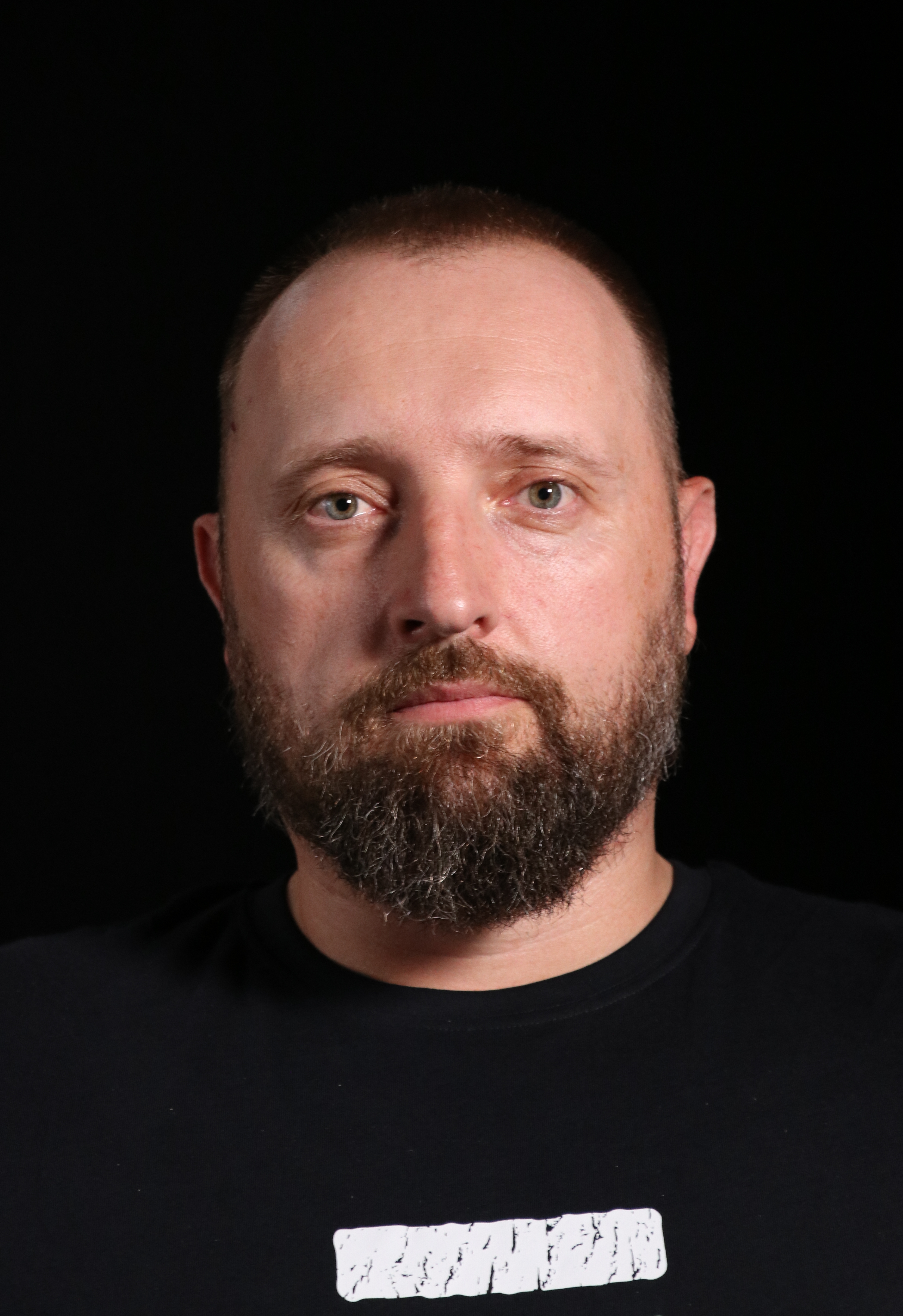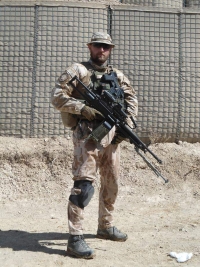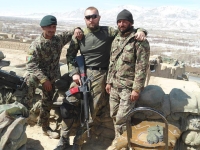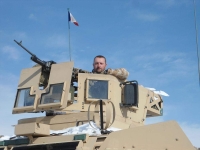The bullet flies faster than the sound of a gunshot

Download image
Martin Kulhánek was born in Aš on 2 October 1982. His grandparents moved to the borderland after the war for job opportunities in textiles factories that faced a shortage of labour after the Germans were deported. His grandfather Václav Jiráň completed his military service in the Auxiliary Technical Battalions. Martin graduated from an eight-year high school in Aš and joined the Honour Guard in Prague in 2002 for a year of military service. When the army went professional he started serving as a pro soldier with the 41st Mechanised Battalion in Žatec in 2005, and was sent to the Rapid Deployment Brigade after a specialisation course for artillerymen. After six months of training, he left for an international mission in Kosovo in the summer of 2007. Less than a year after his return, he went to Puli Alam, Afghanistan the Schenk base, tasked with accompanying the reconstruction teams in their efforts. His second mission in Afghanistan was in 2011 when he and others were in charge of training local soldiers. That was the first time he came into direct contact with the enemy and was forced to use his weapon. When he was leaving for his third mission in Afghanistan in 2014, he already had two young daughters at home. It was then that the Czech Republic suffered its worst loss of life, with four Czech soldiers killed on the spot after a terrorist attack and one dying after being transported to the Czech Republic. After returning from his mission, Martin Kulhánek began working as a senior warrant officer in a command company and graduated from university. He was living with his wife and two daughters in Aš at the time of filming.



